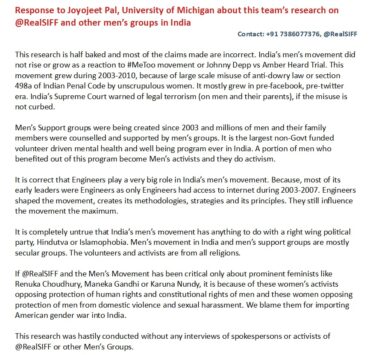Family Law and Custody Bias Against Men
Family law serves a critical function in regulating the legal aspects of family relationships and safeguarding the well-being of children during divorces or separations. However, despite strides made in achieving gender equality, a significant and entrenched bias exists within the family law system, resulting in an unfair disadvantage for men in custody disputes.
Societal norms have traditionally favored the assumption that mothers are children’s natural caregivers and nurturers, while fathers are viewed primarily as breadwinners. This pervasive bias has seeped into the family law system, leading to an unjust disparity for men seeking custody of their children. Custody decisions often rest on the presumption that mothers are inherently better suited to care for children, perpetuating stereotypes and marginalizing fathers.
Various factors contribute to the discriminatory treatment faced by men in custody battles. Gender roles and stereotypes play a significant role. Many family courts still adhere to outdated notions that fathers are less capable of providing emotional support and stability to their children compared to mothers. This assumption fails to acknowledge the diverse and evolving roles that fathers can fulfill in their children’s lives.
Another factor is the “tender years” doctrine, which posits that young children should primarily reside with their mothers. Despite its discreditation, this doctrine continues to influence custody decisions, often sidelining fathers and depriving them of meaningful relationships with their children.
The prevalence of false accusations is an additional issue plaguing custody battles. Some individuals resort to fabricating allegations of abuse or neglect against fathers to gain an advantage in court. Even if these accusations are later proven false, irreparable harm is done to the father’s reputation, undermining his chances of obtaining custody.
The custody bias against men carries significant emotional, psychological, and financial ramifications for both fathers and children. Men who are deeply committed to their children often face an uphill battle in proving their worthiness as custodial parents. They encounter skepticism, prejudice, and a lack of empathy from the legal system, making it arduous to establish a strong bond and actively participate in their children’s lives.
On the other hand, children are denied the opportunity for a well-rounded upbringing and the influence of both parents. Research consistently demonstrates the positive impact of involved fathers on children’s development, including enhanced academic performance, emotional well-being, and reduced delinquency risks. Denying children access to their fathers perpetuates the notion that fatherhood is secondary and infringes upon their right to a meaningful relationship with both parents.
Efforts are underway to challenge the prevailing norms and advocate for reforms that address custody injustices against men. Prominent organizations and activists are pushing for gender-neutral legislation and the elimination of biased presumptions regarding the roles of mothers and fathers. These reforms aim to ensure that custody decisions prioritize the child’s best interests and consider each case’s individual circumstances, rather than perpetuating gender stereotypes.
Legal professionals and family court judges play a pivotal role in promoting fairness and equality. Training programs and awareness campaigns can help address unconscious biases and stereotypes that influence decision-making processes. Encouraging open dialogue and ensuring that both parents have equal opportunities to present their cases in court are vital steps toward rectifying the imbalances within the family law system.
Author: Medha Nandagudi, PES University


